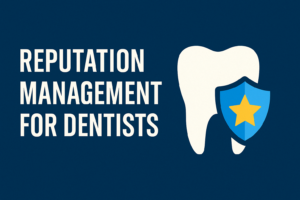Table Of Content
How can you defend your company reputation
Welcome to our blog post on how to defend your company reputation! In today's digital age, where information spreads like wildfire and online reviews hold tremendous power, protecting your corporate reputation has become more important than ever. Whether you are a small startup or an established industry leader, maintaining a positive image can make or break your business. In this article, we will explore what corporate reputation is all about, the benefits of having a good one, and most importantly, how you can effectively safeguard it against potential threats. So let's dive in and discover the secrets of becoming a business reputation defender!
What is corporate reputation?
Corporate reputation is the perception and overall impression that stakeholders have of a company. It encompasses how the public, customers, employees, investors, and partners view your organization. It goes beyond just your products or services; it reflects your values, ethics, trustworthiness, and credibility in the business world.
A strong corporate reputation can provide numerous benefits for your company. It builds customer loyalty and trust. When people perceive your brand positively, they are more likely to choose you over competitors and become repeat customers. Additionally, a good reputation attracts top talent to your organization as job seekers want to work with reputable companies.
Moreover, a positive corporate image helps forge strong partnerships with other businesses in the industry. Suppliers and distributors prefer to collaborate with trustworthy organizations that uphold their commitments.
On the other hand, a negative reputation can be detrimental to your business. Bad news spreads quickly through social media channels and online review platforms like wildfire. One negative experience shared by an unhappy customer can tarnish all of your hard-earned goodwill.
To defend your corporate reputation effectively requires proactive measures such as closely monitoring online conversations about your brand or utilizing online tools designed specifically for managing reputational risks like sentiment analysis software.
Building strong relationships with stakeholders based on open communication is crucial too. By addressing concerns promptly and transparently while providing exceptional customer service consistently creates positive impressions within communities surrounding one's brand identity - allowing them greater control over messaging during crises situations ensuring widespread support remains intact even when faced under adverse circumstances where damage may occur due external forces outside their control.
The benefits of having a good corporate reputation
Having a good corporate reputation can bring numerous benefits to your company. It enhances customer trust and loyalty. A positive reputation instills confidence in consumers, making them more likely to choose your products or services over competitors'. This translates into increased sales and market share.
A strong corporate reputation attracts top talent. Job seekers are often drawn to companies with reputable brands because they believe working for such organizations will enhance their own professional image. This gives you access to a wider pool of qualified candidates and helps you build a highly skilled workforce.
Furthermore, maintaining a good reputation enables you to establish fruitful partnerships with other businesses. Companies prefer associating themselves with trusted brands as it reflects positively on their own image. These collaborations can open up new avenues for growth and expansion.
Having a solid corporate reputation serves as an insurance against potential crises or negative publicity. When faced with challenges or controversies, companies with established goodwill are better equipped to weather the storm without significant damage.
Nurturing and defending your company's reputation provides tangible advantages that contribute to long-term success in today's competitive business landscape
How to defend your corporate reputation
In today's highly competitive business landscape, maintaining a strong corporate reputation is essential for long-term success. A positive reputation not only attracts customers and investors but also helps build trust and credibility in the market. However, with the rise of social media and online platforms, defending your company's reputation has become more challenging than ever before.
So, how can you protect your corporate image from potential threats? Here are some effective strategies to consider:
1. Monitor Your Online Presence: Regularly monitor what people are saying about your company on various online platforms such as social media, review sites, and forums. This will enable you to address any negative comments or false information promptly.
2. Respond Swiftly and Professionally: When faced with negative reviews or criticism, it's crucial to respond in a timely manner while maintaining professionalism. Acknowledge concerns raised by customers or stakeholders and provide solutions or explanations where necessary.
3. Proactive Crisis Management: Anticipate potential issues that could harm your company's reputation and have a crisis management plan in place. This includes identifying key spokespersons within your organization who can effectively communicate during difficult times.
4. Build Strong Relationships: Cultivating positive relationships with key stakeholders such as employees, customers, suppliers, and the community is vital for protecting your reputation. By prioritizing open communication channels and delivering exceptional customer experiences consistently, you can gain advocates who will vouch for your brand even in times of adversity.
5. Maintain Transparency: Being transparent about your business practices builds trust among consumers and other stakeholders alike. Ensure that all communications accurately represent the values of your organization while being honest about any shortcomings or mistakes made along the way.
By implementing these strategies consistently over time, you can successfully defend your corporate reputation against potential threats that may arise unexpectedly.
Remember - safeguarding your company's image requires ongoing effort; it cannot be achieved overnight! Stay vigilant in monitoring conversations surrounding your brand while actively engaging with those who have concerns or questions. A strong reputation is an invaluable asset that can propel your business in an economy that is good or bad.
Case study: XYZ Corporation
XYZ Corporation is a well-established company in the tech industry, known for its innovative products and exceptional customer service. However, like any other business, it faced challenges when it came to defending its corporate reputation.
One particular incident that threatened XYZ Corporation's reputation was a data breach that exposed sensitive customer information. This event not only caused panic among customers but also led to negative media coverage and public scrutiny.
To address this situation effectively, XYZ Corporation took immediate action by promptly notifying affected customers and implementing enhanced security measures. They were transparent about the incident, providing regular updates on their progress towards resolving the issue.
In addition to their proactive response, XYZ Corporation actively engaged with customers through various channels, such as social media platforms and dedicated customer support teams. They listened attentively to concerns and provided timely resolutions.
Furthermore, XYZ Corporation leveraged positive relationships with influencers and key stakeholders in the industry to rebuild trust. They collaborated on joint initiatives focused on cybersecurity awareness and worked closely with regulatory bodies to ensure compliance with data protection regulations.
Through these efforts, XYZ Corporation was able to regain customer confidence gradually. Their commitment towards protecting their clients' data became evident through ongoing investments in security infrastructure and regular third-party audits of their systems.
The case of XYZ Corporation serves as an excellent example of how a company can defend its corporate reputation during challenging times. By taking swift action, being transparent with stakeholders, engaging proactively with customers, collaborating with industry partners, and prioritizing continuous improvement in security practices – businesses can mitigate reputational risks effectively.
Remember that maintaining a strong corporate reputation is an ongoing effort that requires consistent vigilance and adaptability in today's digital age.
Conclusion
Defending your company's reputation is crucial for maintaining a positive image and building trust with stakeholders. A good corporate reputation can lead to various benefits such as increased customer loyalty, attracting top talent, and gaining a competitive edge in the market.
To defend your corporate reputation effectively, it's important to take proactive measures such as monitoring online conversations about your brand, addressing any negative feedback promptly and professionally, providing exceptional customer service, and being transparent in your business practices.
Additionally, having a crisis management plan in place can help mitigate any potential damage to your reputation during challenging times. This includes preparing key messaging and designated spokespersons who can handle media inquiries confidently while keeping the public informed.
A case study of XYZ Corporation illustrates how they successfully defended their corporate reputation by actively engaging with customers on social media platforms and promptly addressing any issues that arose. By demonstrating transparency and responsiveness, XYZ Corporation was able to maintain a positive image despite facing challenges.
Remember that protecting your company's reputation is an ongoing process that requires constant vigilance. Regularly assess the perception of your brand among key stakeholders through surveys or other feedback mechanisms. Continuously improve internal processes to ensure ethical behavior at all levels of the organization.
By prioritizing your company's reputation defense strategies, you can safeguard against potential threats while solidifying yourself as a trusted industry leader. So don't wait until there's a crisis - start investing in protecting your company's reputation today!
And with these tips on defending your company's reputation effectively, you'll be well-equipped to navigate any challenges that may come along the way!
Noteworthy Resources and Reading on Business Reputation Management
Eager to learn more ways you can protect your brand and defend the online reputation of your company? Defamation Defenders has all the answers. Over the past decade our dedicated team of online reputation management experts has helped thousands of corporate executives and small business to SME business owners have used our corporate reputation management services to repair reputation damage, remove negative reviews and address bad press online and negative feedback in the best way possible.









